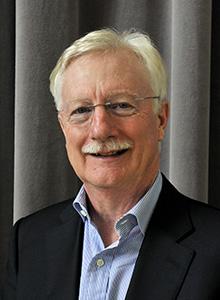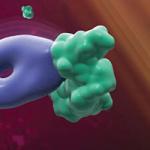
George F. Koob, Ph.D.
Senior Investigator
Integrative Neuroscience Branch, Neurobiology of Addiction Section
NIDA
Director
NIAAA
Research Topics
The Neurobiology of Addiction Section conducts research towards understanding the neurobiological bases for altered motivational states associated with drug addiction at the neurocircuitry, cellular and molecular level and using these studies as a heuristic approach to the study of emotions. In addition, the section conducts research on the relationship between pain and emotional systems in the context of the same neurocircuitry. The neurocircuitry under study involves specific elements of the basal forebrain involving the elements of the extended amygdala: central nucleus of the amygdala, bed nucleus of the stria terminalis and elements of the ventral striatum including the shell and core of the nucleus accumbens. The sections also conducts research on the identification of molecular factors that load such circuits and neurotransmitter system function, on identification of cellular interactions between such brain stress systems, and on identification of the role of outputs such as the hypothalamus in expressing such negative emotional states. Such research will provide key information not only about the neurobiology of addiction, pain and stress but also key information about the neurobiology of motivational systems in general. The ultimate goal of the section is to understand how cellular and molecular changes produce changes in particular neurocircuits to convey negative emotional states that contribute to the motivation to seek drugs.
Selected Publications
- McConnell SA, Brandner AJ, Blank BA, Kearns DN, Koob GF, Vendruscolo LF, Tunstall BJ. Demand for fentanyl becomes inelastic following extended access to fentanyl vapor self-administration. Neuropharmacology. 2021;182:108355.
- Marchette RCN, Carlson ER, Frye EV, Hastings LE, Vendruscolo JCM, Mejias-Torres G, Lewis SJ, Hampson A, Volkow ND, Vendruscolo LF, Koob GF. Heroin- and Fentanyl-Induced Respiratory Depression in a Rat Plethysmography Model: Potency, Tolerance, and Sex Differences. J Pharmacol Exp Ther. 2023;385(2):117-134.
- Wiers CE, Vendruscolo LF, van der Veen JW, Manza P, Shokri-Kojori E, Kroll DS, Feldman DE, McPherson KL, Biesecker CL, Zhang R, Herman K, Elvig SK, Vendruscolo JCM, Turner SA, Yang S, Schwandt M, Tomasi D, Cervenka MC, Fink-Jensen A, Benveniste H, Diazgranados N, Wang GJ, Koob GF, Volkow ND. Ketogenic diet reduces alcohol withdrawal symptoms in humans and alcohol intake in rodents. Sci Adv. 2021;7(15).
- McGinn MA, Tunstall BJ, Schlosburg JE, Gregory-Flores A, George O, de Guglielmo G, Mason BJ, Hunt HJ, Koob GF, Vendruscolo LF. Glucocorticoid receptor modulators decrease alcohol self-administration in male rats. Neuropharmacology. 2021;188:108510.
- Marchette RCN, Gregory-Flores A, Tunstall BJ, Carlson ER, Jackson SN, Sulima A, Rice KC, Koob GF, Vendruscolo LF. κ-Opioid receptor antagonism reverses heroin withdrawal-induced hyperalgesia in male and female rats. Neurobiol Stress. 2021;14:100325.
Related Scientific Focus Areas



Molecular Biology and Biochemistry
View additional Principal Investigators in Molecular Biology and Biochemistry
This page was last updated on Wednesday, May 11, 2022